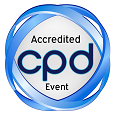
Vicki Hensley
University of Kentucky College of Nursing, USA
Title: Childhood Bullying: Assessment Practices and Predictive Factors Associated with Assessing for Bullying by Health Care Providers
Biography
Biography: Vicki Hensley
Abstract
Childhood bullying affects over 25% of today’s youth and causes up to 160,000 missed school days per year. Bullying causes short and long term adverse effects to both mental and physical health. Many organizations encourage healthcare providers to take an active role in bullying prevention. However, there has been little research into the role of primary healthcare providers regarding childhood bullying and the effectiveness of different approaches to screening and management. Therefore the purposes of this research were to a) explore childhood bullying and the role of the healthcare provider in bullying prevention, and b) develop and evaluate the psychometric properties of Hensley’s Healthcare Provider’s Practices, Attitudes, Self-confidence, & Knowledge Regarding Bullying Questionnaire. Pediatric healthcare providers were asked to participate in this study if they conducted well-child exams on a weekly basis. Information on the provider’s current bullying assessment practices, attitudes, self-confidence, and knowledge regarding bullying was gathered. Results indicated that approximately one-half (46.6%, n=55) of the healthcare providers reported assessing their patients for bullying behaviors during well-child exams. The strongest predictor of positively assessing for bullying was attitudes, recording an odds ratio of 1.24. This indicated for every one-unit increase in attitudes score, the odds of assessing for bullying will be 24% higher. The odds ratio of self-efficacy or self-confidence was 1.18, indicating that for every one-unit increase in self-efficacy score, the odds of assessing for bullying will be 18% higher.

